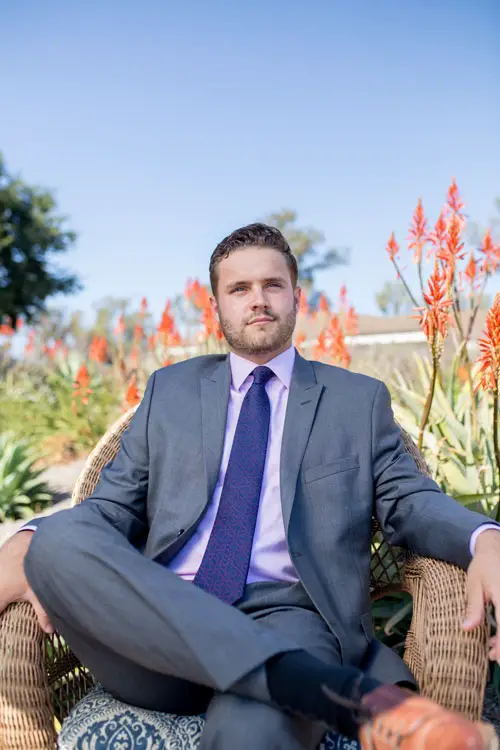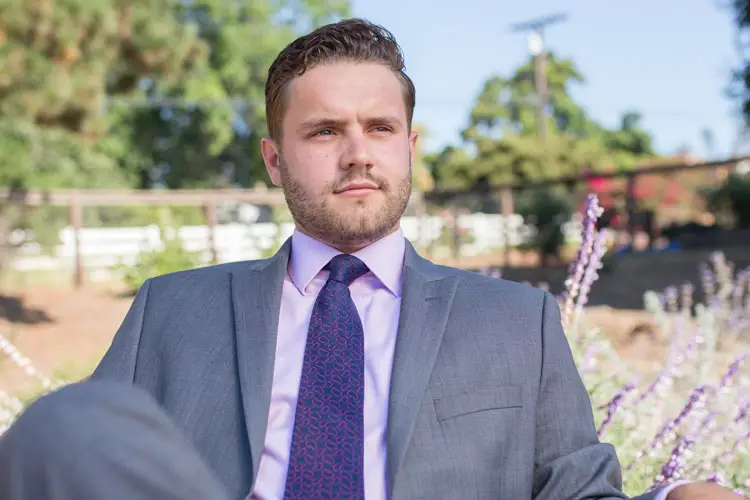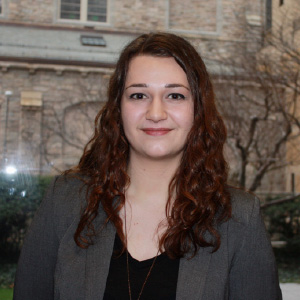Twenty-one-year-old Pomona College student Tom Erb is the co-founder of a citizens’ climate lobby that has teamed up with the non-profit group Our Climate and the award-winning documentary series “Years of Living Dangerously” to launch the “Put a Price on It” campaign, which seeks to institute a tax on carbon emissions. Erb and his colleagues train students across the country to organize locally and to lobby city, state and federal officials about carbon pricing.
Erb’s work organizing students and lobbying elected officials got him featured as a dynamic character on an episode of “Years of Living Dangerously” that focused on the potential of carbon pricing as the most promising solution to climate change. With experience serving as a climate intern for Hawaii Senator Brian Schatz and a communications/press intern for California Congressman Eric Swalwell under his belt, Erb is well prepared to continue contributing to the fight against climate change, in college and beyond.
“When we started this campaign at Pomona College, we eventually decided that we wanted to focus on solutions. We came to the consensus that carbon pricing was the solution we needed to get all the other things that we’re trying to do. It’s essentially a baseline solution to catapult a transition to a sustainable economy.”
“We mimicking the federal policy process—whenever you see major legislation passed, you need a coalition. We tried to mimic that at the college level by getting students to get clubs on campus, departments, professors—all the way up to the college president—to endorse this idea. Our goal was to get this at other colleges across the country, and eventually go and lobby elected officials.”
“Right now, polluters don’t have to pay to put pollution into the air. We pay to get our trash picked up on the sidewalk, you pay if you pollute water but companies that are putting greenhouse gas emissions in the atmosphere—emissions that the Supreme Court has ruled are pollutants—aren’t paying for it. So, simply, what a carbon tax does is force polluters to pay for the actual cost of their production, which is the essence of how a free market society is supposed to work.”

“There’s three things we need to do: We need a carbon tax; we need to get rid of subsidies for fossil fuel companies and dirty energy in general, and we need to increase our investment into battery technology and renewable energy and infrastructure. As soon as there’s a clear signal that dirty energy is expensive and clean energy is less expensive, then investments will start pouring into renewable energy—and that’s where you start seeing the renewable energy revolution take off.”
“This is something we need to work on together, and that is why carbon pricing is so appealing to both sides: It can be pitched as a conservative or a progressive idea, and it’s an idea that could bring the parties together at a time when they’re completely separate.”
“In the past four years, I’ve seen a change among young people, even young conservatives, young Republicans. They’re realizing that the science of climate change is accurate, and it’s more about solving this problem than denying that the problem exists. There is the potential for a productive debate between Republicans and Democrats about how to address climate change.”
“When I was fifteen years old, I was at the dinner table with my dad, and he started talking to me about climate change. I remember that he said, ‘Fifteen or twenty years from now, you may be sitting down with your own children and they may be coloring an elephant in a coloring book, and your daughter could ask you why there were elephants alive when you were growing up but not now.’ I know it’s the decisions we make right now that decide whether or not we have elephants in twenty years.”
“I started organizing in high school around 2012, doing general environmental work. There were people who didn’t appreciate that, because it was really the ‘climate change is a hoax’ era on our campus. I started getting anonymous letters; there was stupid stuff like newspaper cutouts about how climate change isn’t real, things like that. But then it escalated to the point where they were making weird threats against me, and they were kind of stalking me, coming to basketball games. And I don’t know if these were from the same people, but at the same time my house was continuously vandalized for six weeks in a row. On the last day someone actually blew up my mailbox, and the trash in my front yard was lit on fire. That was the moment I decided to do this for the rest of my life, because I realized that even though this is scary, the overwhelming impact of climate change will be greater than any personal impact that I could face—even if it’s someone blowing up my mailbox.”
“I think Trump and the United States being out of [the Paris climate accord] is better than Trump and the United States being in that agreement and not doing anything to meet our obligations. Because if we stay in that agreement and we don’t live up to what we’re supposed to do, it shows the weakness of the agreement overall. And now you have all the cities and states stepping up, trying to live up to it as well.”
“Even when you see difficult times, like right now, I’m very optimistic about our future prospects because of the young leaders I’ve met.”
“The number one thing I’ve learned would be that one person actually does have the ability to bring about a lot of change through consistent effort, teaming up and realizing that the only way you get something done is by working with other people.”

















